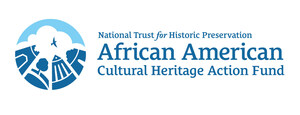Older, Smaller Buildings Are Key to Neighborhood Vitality
New Research Shows How Diverse Blocks Provide Economic and Cultural Opportunities Not Found in Newer Neighborhoods
SEATTLE and WASHINGTON, May 15, 2014 /PRNewswire-USNewswire/ -- A new research report released today, Older, Smaller, Better: Measuring How the Character of Buildings and Blocks Influences Urban Vitality, by the National Trust for Historic Preservation demonstrates how neighborhoods that protect and find new uses for older, smaller buildings are more economically sustainable, culturally vibrant, and opportunity-rich than those with only larger, newer buildings.
The report shows how neighborhoods with a mix of older and newer buildings outperform newer neighborhoods in terms of opportunities for small locally-owned businesses and for local cultural outlets. Older neighborhoods are highly walkable, appeal to young professionals and retirees, and offer a wide array of arts and entertainment options.
"The National Trust's research of neighborhoods with older, smaller buildings is the first comprehensive study of the relationship between cities' historic buildings and prosperity," said Stephanie Meeks, president of the National Trust for Historic Preservation. "The economic growth of communities is enhanced by preserving our historic neighborhoods. These areas attract more young, talented professionals, contain more businesses per commercial square foot and offer more creative jobs than areas with only larger, newer buildings."
The report was produced by the Preservation Green Lab, an initiative of the National Trust for Historic Preservation, with offices in Seattle, Denver and Los Angeles. The Preservation Green Lab works closely with local, state and national partners to develop innovative content, strategic partnerships, research and public policies that save places.
"For years, people have been pushing density above all else," said Mike Powe, Ph.D., lead researcher for the Preservation Green Lab. "With our goal of supporting local businesses and neighborhoods, we now know from the insights in this report that how we build and what type of structures we maintain matters tremendously to the success of these communities."
Older, Smaller, Better Key findings:
- Older, mixed-use neighborhoods are more walkable.
- Young people love old buildings.
- Nightlife is most vibrant on streets with a diverse range of building ages.
- Cultural outlets thrive in older, mixed-use neighborhoods.
- Older business districts offer greater opportunities for entrepreneurship, including women and minority-owned businesses.
- Older, smaller buildings support the local economy with more non-chain, locally owned businesses.
- Older business districts have more businesses per commercial square foot.
Older, Smaller, Better Research Methodology:
The research for this report was conducted in three cities: Seattle, San Francisco and Washington, D.C. It relied on spatial analysis to determine the relative role of building age, diversity of age, and size, alongside other measures. More than 40 performance metrics were considered, including cultural vibrancy, real estate performance, transportation options and intensity of human activity.
The research represents the culmination of the first phase of a multi-year project, starting in three cities that were chosen based on their "hot market" status. A second phase is underway to look at markets with higher levels of vacancy and disinvestment.
The research was funded by The Summit Foundation, The Kresge Foundation and the Prince Charitable Trusts. The Preservation Green Lab worked with a team of key collaborators, including State of Place™, Gehl Studio—A Gehl Architects Company, and Impresa, Inc.
For more information, including interactive maps and web-based tools displaying key findings from the new report, visit www.oldersmallerbetter.org.
Suggested Tweet: New @PresGreenLab study shows diverse blocks offer economic and cultural opportunities not found in newer neighborhoods #oldersmallerbetter
About the National Trust for Historic Preservation
The National Trust for Historic Preservation, a privately funded nonprofit organization, works to save America's historic places. www.PreservationNation.org
SOURCE National Trust for Historic Preservation
WANT YOUR COMPANY'S NEWS FEATURED ON PRNEWSWIRE.COM?
Newsrooms &
Influencers
Digital Media
Outlets
Journalists
Opted In





Share this article